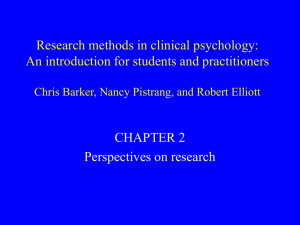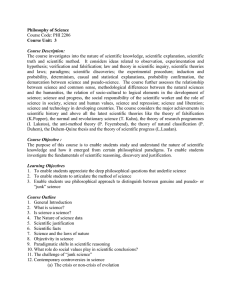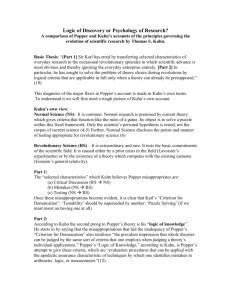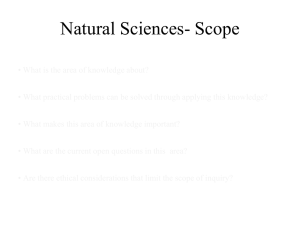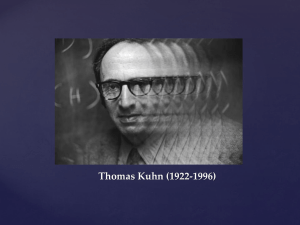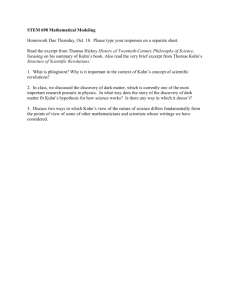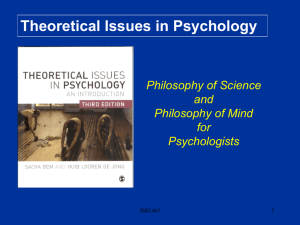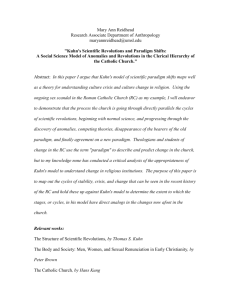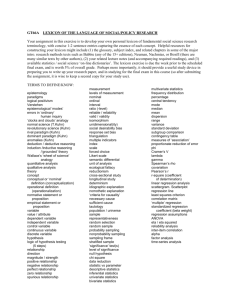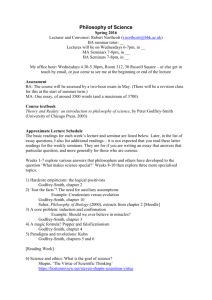StudyQuestions3
advertisement
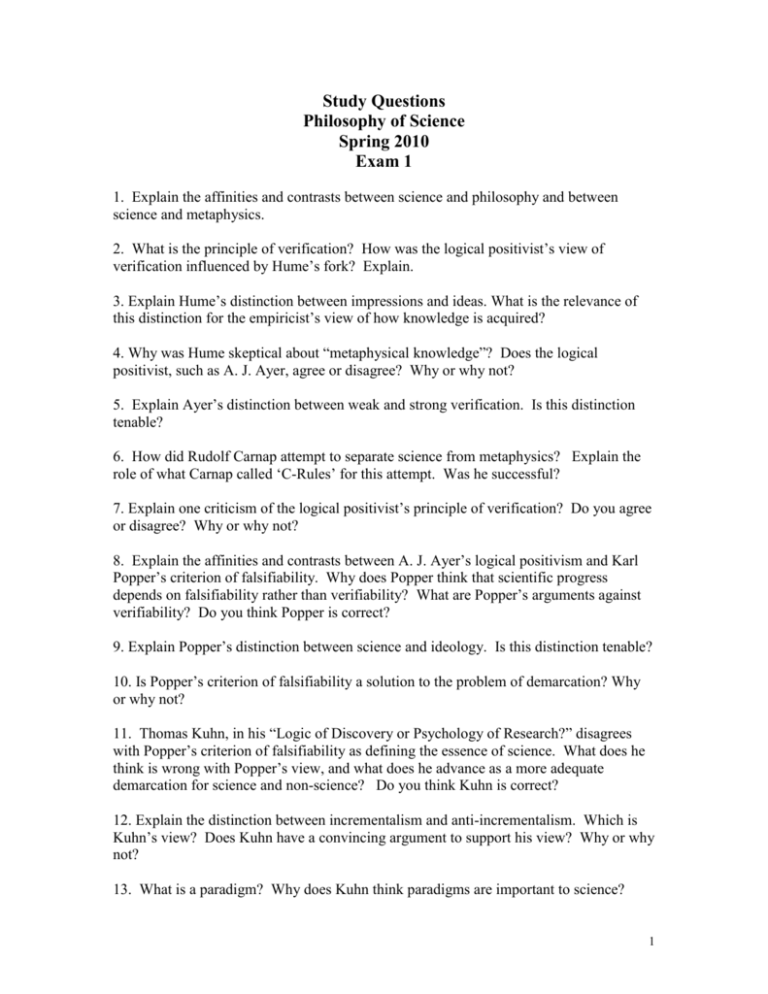
Study Questions Philosophy of Science Spring 2010 Exam 1 1. Explain the affinities and contrasts between science and philosophy and between science and metaphysics. 2. What is the principle of verification? How was the logical positivist’s view of verification influenced by Hume’s fork? Explain. 3. Explain Hume’s distinction between impressions and ideas. What is the relevance of this distinction for the empiricist’s view of how knowledge is acquired? 4. Why was Hume skeptical about “metaphysical knowledge”? Does the logical positivist, such as A. J. Ayer, agree or disagree? Why or why not? 5. Explain Ayer’s distinction between weak and strong verification. Is this distinction tenable? 6. How did Rudolf Carnap attempt to separate science from metaphysics? Explain the role of what Carnap called ‘C-Rules’ for this attempt. Was he successful? 7. Explain one criticism of the logical positivist’s principle of verification? Do you agree or disagree? Why or why not? 8. Explain the affinities and contrasts between A. J. Ayer’s logical positivism and Karl Popper’s criterion of falsifiability. Why does Popper think that scientific progress depends on falsifiability rather than verifiability? What are Popper’s arguments against verifiability? Do you think Popper is correct? 9. Explain Popper’s distinction between science and ideology. Is this distinction tenable? 10. Is Popper’s criterion of falsifiability a solution to the problem of demarcation? Why or why not? 11. Thomas Kuhn, in his “Logic of Discovery or Psychology of Research?” disagrees with Popper’s criterion of falsifiability as defining the essence of science. What does he think is wrong with Popper’s view, and what does he advance as a more adequate demarcation for science and non-science? Do you think Kuhn is correct? 12. Explain the distinction between incrementalism and anti-incrementalism. Which is Kuhn’s view? Does Kuhn have a convincing argument to support his view? Why or why not? 13. What is a paradigm? Why does Kuhn think paradigms are important to science? 1 14. Explain why Kuhn thinks that scientists deeply involved in what he calls “normal science” are resistant to revolution. 15. What is Kuhn’s concept of incommensurability? Why have some critics seen serious problems in this idea? 16. How would Kuhn distinguish a revolutionary from a crank? 17. What is the disagreement between Popper and Kuhn on ad hoc modification of hypotheses after negative test results? 18. What does Kuhn mean by pre-paradigmatic science? Give an example. 19. Does Popper have a problem explaining scientific progress? Does Kuhn have the same problem? Why or why not? 20. Does Popper have a problem with Kuhn’s notion of normal science? Explain. Know the following terms and distinctions: metaphysics, epistemology, problem of demarcation, empiricism/ rationalism, logical positivism, critical rationalism, verification/falsification, empirical/analytical statements, theoretical/observation statements, C-Rules, weak/strong verification, verification in practice/principle, scientific law/hypothesis/theory, conjecture, ad hoc modification, verisimilitude, incrementalism/anti-incrementalism, incommensurability, normal/revolutionary science, paradigm/pre-paradigm science, realism/anti-realism, relativism/objectivism. 2
